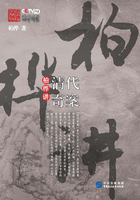Of these three sections of the Opposition, the most numerous and the best prepared to undertake the functions and responsibilities of government is that of the Liberals. The movement which they represent began immediately after the Crimean War, when the upper ranks of society, smarting under defeat and looking about for the cause of the military disasters, came to the conclusion that Autocracy had been put to a crucial test, and found wanting. The outburst of patriotic indignation at that time and the eager desire for a more liberal regime have been described in previous chapters.
For a moment the more sanguine critics of the Government imagined that the Autocratic Power, persuaded of its own inefficiency, would gladly accept the assistance of the educated classes, and would spontaneously transform itself into a Constitutional Monarchy. In reality Alexander II. had no such intentions. He was resolved to purify the administration and to reform as far as possible all existing abuses, and he seemed ready at first to listen to the advice and accept the co-operation of his faithful subjects; but he had not the slightest intention of limiting his supreme authority, which he regarded as essential to the existence of the Empire. As soon as the landed proprietors began to complain that the great question of serf emancipation was being taken out of their hands by the bureaucracy, he reminded them that "in Russia laws are made by the Autocratic Power," and when the more courageous Marshals of Noblesse ventured to protest against the unceremonious manner in which the nobles were being treated by the tchinovniks, some of them were officially reprimanded and others were deposed.
The indignation produced by this procedure, in which the Tsar identified himself with the bureaucracy, was momentarily appeased by the decision of the Government to entrust to the landed proprietors the carrying out of the Emancipation law, and by the confident hope that political rights would be granted them as compensation for the material sacrifices they had made for the good of the State; but when they found that this confident hope was an illusion, the indignation and discontent reappeared.
There was still, however, a ray of hope. Though the Autocratic Power was evidently determined not to transform itself at once into a limited Constitutional Monarchy, it might make concessions in the sphere of local self-government. At that moment it was creating the Zemstvo, and the Constitutionalists hoped that these new institutions, though restricted legally to the sphere of purely economic wants, might gradually acquire a considerable political influence. Learned Germans had proved that in England, "the mother of modern Constitutionalism," it was on local self-government that the political liberties were founded, and the Slavophils now suggested that by means of an ancient institution called the Zemski Sobor, the Zemstvo might gradually and naturally acquire a political character in accordance with Russian historic development. As this idea has often been referred to in recent discussions, I may explain briefly what the ancient institution in question was.
In the Tsardom of Muscovy during the sixteenth and seventeenth centuries representative assemblies were occasionally called together to deal with matters of exceptional importance, such as the election of a Tsar when the throne became vacant, a declaration of war, the conclusion of a peace, or the preparation of a new code of laws. Some fifteen assemblies of the kind were convoked in the space of about a century (1550-1653). They were composed largely of officials named by the Government, but they contained also some representatives of the unofficial classes. Their procedure was peculiar. When a speech from the throne had been read by the Tsar or his representative, explaining the question to be decided, the assembly transformed itself into a large number of commissions, and each commission had to give in writing its opinion regarding the questions submitted to it. The opinions thus elicited were codified by the officials and submitted to the Tsar, and he was free to adopt or reject them, as he thought fit. We may say, therefore, that the Zemski Sobor was merely consultative and had no legislative power; but we must add that it was allowed a certain initiative, because it was permitted to submit to the Tsar humble petitions regarding anything which it considered worthy of attention.
Alexander II. might have adopted this Slavophil idea and used the Zemski Sobor as a means of transition from pure autocracy to a more modern system of government, but he had no sooner created the Zemstvo than he thought it necessary, as we have seen, to clip its wings, and dispel its political ambition. By this repressive policy the frondeur spirit of the Noblesse was revived, and it has continued to exist down to the present time. On each occasion when I revisited Russia and had an opportunity of feeling the pulse of public opinion, between 1876 and 1903, I noticed that the dissatisfaction with the traditional methods of government, and the desire of the educated classes to obtain a share of the political power, notwithstanding short periods of apparent apathy, were steadily spreading in area and increasing in intensity, and I often heard predictions that a disastrous foreign war like the Crimean campaign would probably bring about the desired changes. Of those who made such predictions not a few showed clearly that, though patriotic enough in a certain sense, they would not regret any military disaster which would have the effect they anticipated.
Progress in the direction of political emancipation, accompanied by radical improvements in the administration, was evidently regarded as much more important and desirable than military prestige or extension of territory.














